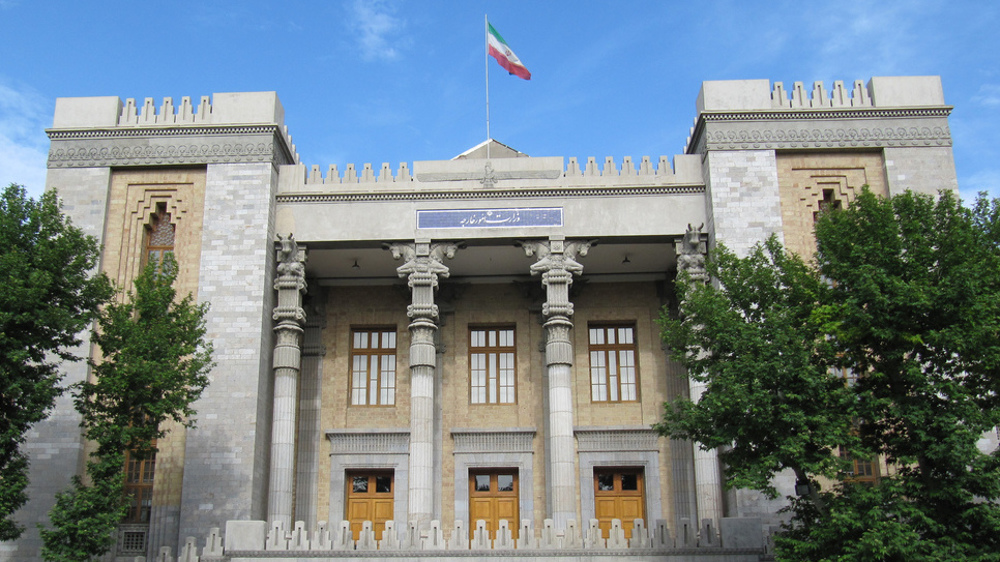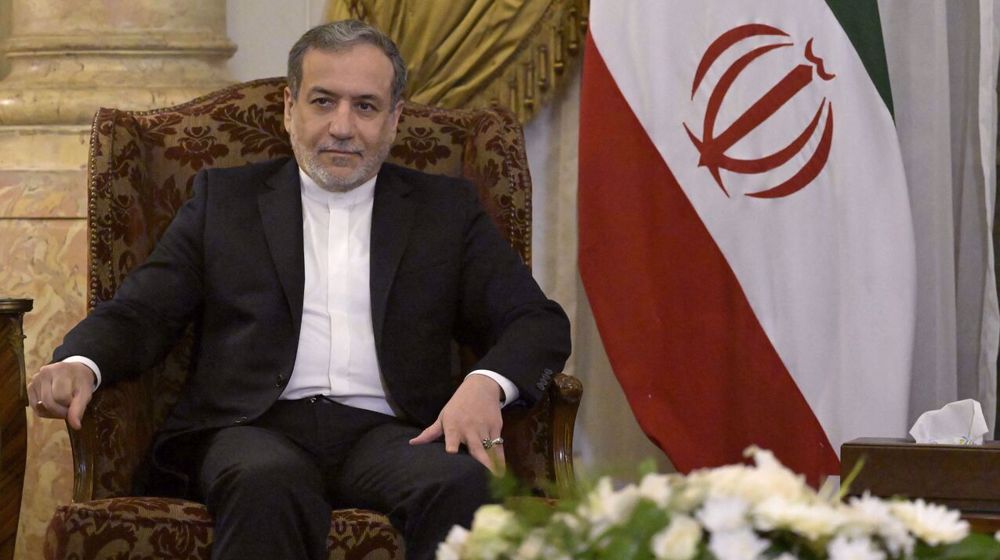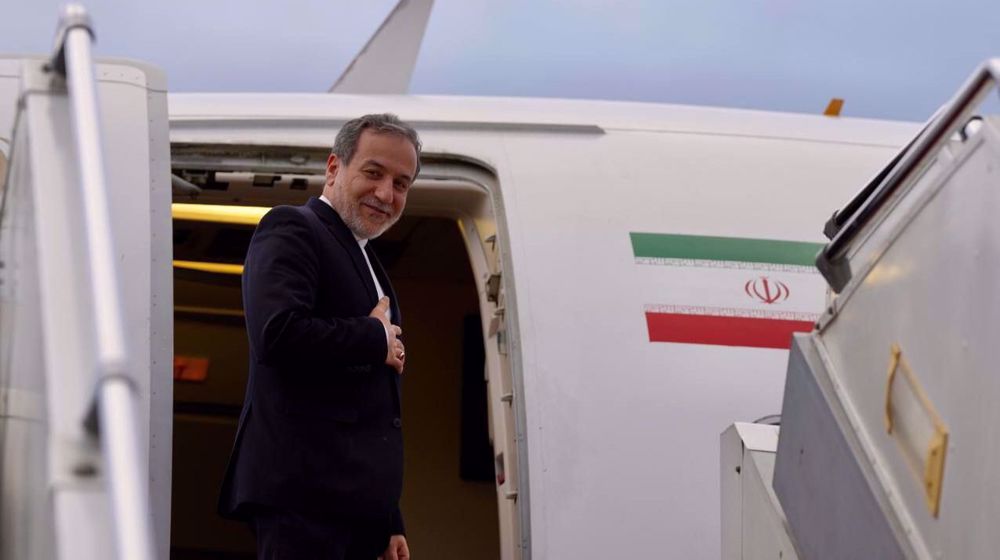Any peace deal must guarantee Afghan nation’s right to determine own fate: Iran
Iranian Foreign Minister Mohammad Javad Zarif says national talks are the only way out of the conflict gripping neighboring Afghanistan, and that any agreement on restoring peace to the war-torn country should guarantee its right to decide its own political future.
Addressing the 9th Heart of Asia-Istanbul Process (HoA-IP) ministerial conference in Tajikistan’s capital of Dushanbe on Tuesday, Zarif highlighted Iran’s efforts to create convergence in the region and help Afghanistan play a role in regional developments.
Zarif said the establishment of lasting peace and stability in the war-ravaged country would only be possible on the basis of intra-Afghan talks, stressing that the Islamic Republic would continue efforts to facilitate such negotiations.
Extensive talks at the Heart of Asia mtg in Dushanbe.
— Javad Zarif (@JZarif) March 30, 2021
Afghanistan, regional & global issues, & bilateral coop were on agenda w/ Presidents & FMs of Tajikistan and Afghanistan, & FMs of Azerbaijan, India, Pakistan, Turkey.
Stressed UN role in inclusive Afghanistan peace talks. pic.twitter.com/UtugiMrsS1
The top diplomat called on the United Nations and regional neighbors to help facilitate the peace talks among Afghan groups.
Zarif hailed the Afghan people’s valuable achievements in establishing the rule of law and drafting a constitution, slamming as “unconstructive” the solutions devised by certain extra-regional players for the conflict, which are in fact meant to advance their personal political agendas.
The peace talks have been underway since September last year, with the Afghan groups struggling to make headway amid serious differences between them, primarily due to a lack of clarity in a deal reached between the Taliban and the United States earlier.
The US-Taliban deal calls for the withdrawal of US troops from Afghanistan in exchange for a halt in the militant group’s attacks on international forces.
Under the so-called Doha Accord, the former US administration promised to bring the number of US forces in Afghanistan to zero by May 2021.
Although the new US administration led by Joe Biden has sought a review of the deal, experts say the principal US policy on Afghanistan remains the same, full of ambiguity and double-speak.
Now with weeks left to the May 1 deadline, Washington is vigorously pushing the administration of Afghan President Ashraf Ghani to share power with the militant group, which has not gone down well with Kabul.
The Taliban, which have held a series of consultations with regional countries in recent months, have so far rejected a ceasefire and said they would not directly join an interim government.
They have warned of “consequences” if the US does not honor the looming deadline to pull the remaining 2,500 troops out of the war-ravaged country that it invaded in 2001.
Elsewhere in his speech, Zarif pointed to the inauguration of a joint railway project linking eastern Iran to western Afghanistan, hailing it as a major step toward the construction of a regional and international railroad network.
Zarif also outlined Iran’s measures to help Afghanistan meet its needs in the fight against the coronavirus pandemic, calling on all countries to join hands in the battle against the deadly outbreak.
The first Heart of Asia meeting was held in the Turkish city of Istanbul in 2011 to help find a solution to the challenges facing Afghanistan.
Fifteen countries, including the Islamic Republic of Iran, Afghanistan, Tajikistan, Pakistan, China, Russia, India, Kazakhstan, Kyrgyzstan, Turkmenistan, Uzbekistan, Turkey, Azerbaijan Republic, Saudi Arabia and the United Arab Emirates, participate in the process, while another 17 states and 12 regional and international organizations support it.
Iran, Tajikistan FMs discuss cooperation on Afghanistan
On the sidelines of the conference, the Iranian foreign minister and his Tajik counterpart Sirojiddin Muhriddin on Tuesday sat down for talks on ways to improve mutual relations and bilateral cooperation on Afghanistan.
Zarif said he held fruitful talks with President of Tajikistan Emomali Rahmon and expressed Tehran’s readiness to boost cooperation with Dushanbe in various fields.

The Tajiki foreign minister, for his part, described the common culture and history of Iran, Tajikistan, and Afghanistan as a priceless asset for the three nations.
He voiced his country’s readiness to develop trilateral economic infrastructure, including increasing the transit and rail capacities between the three countries.
The Iranian foreign minister also held talks with his Azeri counterpart, Jeyhun Bayramov. On Monday, Zarif met with Afghan Foreign Minister Mohammad Hanif Atmar, Indian External Affairs Minister Subrahmanyam Jaishankar and Executive Director of the Conference on Interaction and Confidence Building Measures in Asia (CICA) Kairat Sarybay.
Iran, Tajikistan, Afghanistan mulling over initiative for cultural collaboration
In a joint meeting with his Afghan and Tajik counterparts on Tuesday, the Iranian foreign minister said Tehran is ready to launch a plan to develop cultural cooperation among the three Persian-speaking nations, adding that trilateral cooperation plays a major role in reinforcing regional convergence and stability.

The foreign minister of Tajikistan also hailed the common cultural values among the three countries as a superb example of regional convergence and proposed the idea of joint cultural programs.
The Afghan foreign minister, for his part, praised the common stance of Kabul, Tehran and Dushanbe on regional issues and voiced his country’s readiness to follow up trilateral cultural, economic and political cooperation on the basis of a unified roadmap.
Iran FM, Afghan president discuss mutual ties, regional issues
In a meeting between Zarif and Afghan President Ashraf Ghani in Dushanbe, the two sides exchanged views about mutual relations, the peace process in Afghanistan and regional issues.
They also discussed possible ways for Iran to help Afghanistan establish sustainable peace and stability at home.
Ghani expressed appreciation for Iran’s support for his country and said Kabul is ready to expand all-out relations with Tehran.

Pakistan attaches great importance to Iran ties: FM
Zarif also met with Pakistani Foreign Minister Makhdoom Shah Mahmood Qureshi, who said his country attaches great importance to its cordial relations with Iran, which are rooted in historical and geographical commonalities and common interests.
He added that Tehran and Islamabad have numerous opportunities which should be used to strengthen trade and economic cooperation.
Qureshi commended Iran’s stance on issues in Pakistan, particularly on Kashmir dispute at the international forums and expressed hope that the establishment of the border markets between the two countries would serve their common interests.
He emphasized that Iran and Pakistan would continue consultations on regional peace and stability.

Iran congratulates Pope Leo XIV, hopes for promotion of peace, justice

Araghchi: Iran, US to hold fourth round of talks in Oman on Sunday

Iran FM to visit Saudi Arabia, Qatar ahead of possible US talks
Yemen warns about US sabotage amid fledgling ceasefire; threatens strong response
Pakistan warns of ‘major conflict' as India accuses Islamabad of ‘massive drone attack’
Israeli aggression on Tulkarm continues as regime intensifies West Bank siege, killings
VIDEO | 29th Intl. Oil, Gas expo kicks off in Tehran
VIDEO | Imam Reza shrine hosts memorial for Raeisi on anniversary of his passing
UK imposes ‘largest ever’ sanctions package on Russia, hits 100 Russian tankers
Iran congratulates Pope Leo XIV, hopes for promotion of peace, justice
Araghchi: Iran, US to hold fourth round of talks in Oman on Sunday







 This makes it easy to access the Press TV website
This makes it easy to access the Press TV website